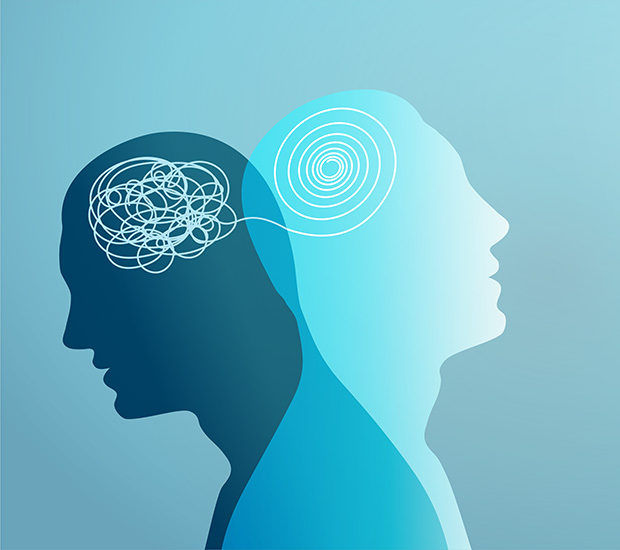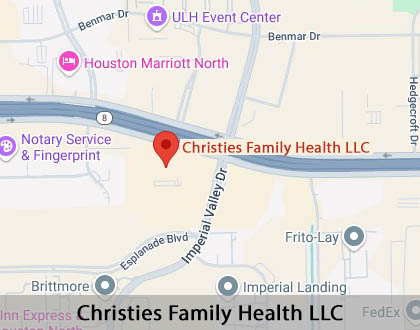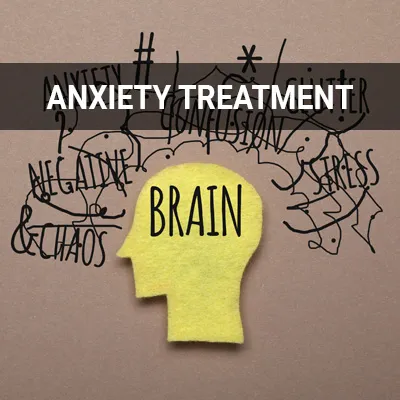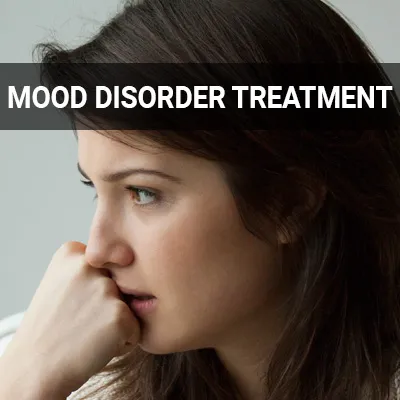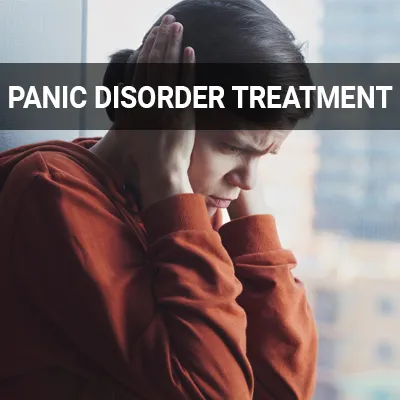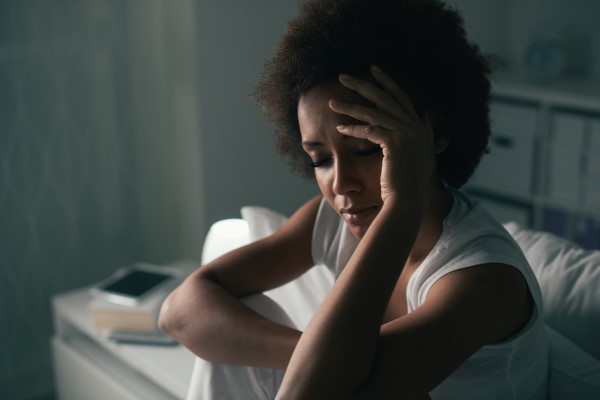Bipolar Disorder Treatment Houston, TX
Bipolar disorder affects a person’s behavior, mental health, and stability due to changes in mood, energy, and normal functioning. Periods of intense emotion result in what is called “mood episodes,” which are the cause of extreme behaviors and mood swings. It is important to seek help from a psychiatrist in order to acquire an appropriate diagnosis, as other conditions can affect a person’s mood.
Bipolar disorder treatment is available at Christies Family Health LLC in Houston and the surrounding area. People with bipolar disorder can live normal and happy lives with proper management through medication, counseling, and other therapies. Call us today at (832) 915-1818 to schedule an appointment or learn more about our services.
What is Bipolar Disorder?
Bipolar disorder, formerly called manic depression, is becoming more openly discussed in recent years. According to the American Psychiatric Association, “Bipolar disorder is a brain disorder that causes changes in a person's mood, energy, and ability to function.” Patients with bipolar disorder have periods of intense happy or sad emotions categorized as manic/hypomanic (abnormally happy) or depressive (abnormally sad), referred to as mood episodes. These episodes can last for days, weeks, or months, especially without treatment or management.
Bipolar disorder can fall under three main types of diagnoses: bipolar I, bipolar II, and cyclothymic disorder. Bipolar I disorder includes persons who experience manic episodes of extreme happiness followed by depressive episodes of extreme sadness caused by a particular trigger. They experience neutral moods in between. Bipolar II disorder describes those who have at least two years of periodic hypomanic and depressive episodes with regular functioning throughout. Cyclothymic disorder refers to a mild version of bipolar disorder that results in frequent mood swings with both hypomanic and depressive symptoms. Each type has its own set of symptoms, causes, and treatments.
“Bipolar disorder can fall under three main types of diagnoses: bipolar I, bipolar II, and cyclothymic disorder.”
Symptoms of Bipolar Disorder
Symptoms of bipolar disorder vary by type and may change over time. While most people experience both manic/hypomanic and depressive episodes, their symptoms will vary.
People who experience manic and hypomanic episodes may have the following symptoms:
- Abnormally upbeat, jumpy, or wired
- Decreased need for sleep
- Distractibility
- Exaggerated sense of well-being and self-confidence (euphoria)
- Increased activity, energy, or agitation
- Poor decision-making (shopping sprees, sexual risks, and foolish investments)
- Racing thoughts
- Unusual talkativeness
People who experience more frequent depressive episodes may experience symptoms such as:
- Decreased ability to think or concentrate, or indecisiveness
- Depressed mood, such as feeling sad, empty, hopeless, or tearful (in children and teens, depressed mood can appear as irritability)
- Either insomnia or sleeping too much
- Either restlessness or slowed behavior
- Fatigue or loss of energy
- Feelings of worthlessness or excessive or inappropriate guilt
- Marked loss of interest or feeling no pleasure in all — or almost all — activities
- Significant weight loss when not dieting, weight gain, or decrease or increase in appetite (in children, failure to gain weight, as expected can be a sign of depression)
- Thinking about, planning or attempting suicide
“While most people experience both manic/hypomanic and depressive episodes, their symptoms will vary.”
Causes and Risk Factors
Although there are no proven causes of bipolar disorder, various genetic and environmental factors may make a person more likely to develop the disorder. Children with a parent with bipolar disorder are at higher risk than those who do not. However, studies showed that identical twins were the least likely to inherit the disorder from their parents.
Environmental factors include stress, major life changes, the onset of a medical condition, loss of a loved one, smoking, and alcohol and substance abuse. According to the Cleveland Clinic, an estimated 60 percent of people with bipolar disorder are dependent on drugs or alcohol. The study relates bipolar disorder to those with seasonal depression, anxiety disorder, and PTSD.
“Although there are no proven causes of bipolar disorder, various genetic and environmental factors may make a person more likely to develop one.”
Check out what others are saying about our mental wellness services on Yelp: Bipolar Disorder Treatment in Houston, TX
Diagnosing Bipolar Disorder
There is no definitive test or way for a psychiatrist to diagnose bipolar disorder. Typically, a series of tests and methods can help assess a person’s condition and rule out the possibility of other disorders or conditions. It is important for the patient to begin monitoring mood changes as they come and write down the feelings exhibited during intense episodes in order to properly describe these emotions to a therapist or psychiatrist.
To diagnose bipolar disorder, we will go through an initial consultation and assessment in which we have a discussion about the symptoms and episodes a patient experiences. The assessment may include a physical test, lab work, a thyroid function test, and urine analyses. These tests are primarily done to rule out other possibilities that could be affecting mood. After ruling out all other possibilities, we conduct a mental health evaluation which consists of questions relating to both manic/hypomanic and depressive episodes. In most cases, this evaluation can appropriately diagnose a patient with bipolar disorder and help us curate the best treatment.
“Typically, a series of tests and methods are used to assess a person’s condition and rule out the possibility of other disorders or conditions.”
Questions Answered on This Page
Q. What are the three types of bipolar disorder?
Q. What are the symptoms of bipolar disorder?
Q. What are the risk factors of bipolar disorder?
Q. How is bipolar disorder diagnosed?
Q. What are the different treatments for bipolar disorder?
People Also Ask
Q. How can the patient help their mood disorder treatment be more successful?
Q. What are the possible causes and risk factors of depression?
Types of Bipolar Disorder Treatment
Following a bipolar disorder diagnosis, our team will customize a series of treatments to help effectively manages the symptoms in all areas of the patient’s life. Treatment for bipolar disorder includes comprehensive treatments such as medication, therapy, and various complementary treatments.
Comprehensive treatments refer to a full treatment plan, including medication, therapies, and other treatments specific to each patient. Medications used to treat bipolar disorder are generally mood stabilizers such as lithium (Lithobid) and valproic acid (Depakene). Various forms of therapy are especially effective when coupled with other treatments. Therapy for bipolar disorder includes behavioral therapy, interpersonal and social rhythm therapy, and family-focused therapy.
The psychiatrist does a thorough exam of the patient and considers all options before prescribing medication. The patient's medication will be monitored in regular check-up appointments to make sure it is the right fit and working as it should. In addition, patients will be given detailed information on any medication prescribed, along with potential side effects and directions for taking it safely.
“Treatment for bipolar disorder includes comprehensive treatments such as medication, therapy, and various complementary treatments.”
Frequently Asked Questions
Q. Can something trigger bipolar disorder?
A. There are a variety of risk factors that can trigger bipolar disorder, such as having an immediate relative with the disorder, high levels of unmanaged stress, and traumatic events (loss of a loved one, car accident, etc.). However, in most cases, bipolar disorder does not spark on its own. Those who fall under genetic or environmental risk factors are more prone to developing it but not guaranteed to acquire it.
Q. How can I manage bipolar disorder?
A. It is important to seek professional care and help yourself in order to properly manage bipolar symptoms. Some methods include eating clean, avoiding alcohol, substances, and tobacco products, limiting stress, sleeping and exercising well, and keeping a journal to monitor mood continually. Self-care and management should be coupled with professional help and counseling.
Q. How can I avoid having an episode?
A. Generally, those who are in treatment for bipolar disorder have a plan that helps limit their personal triggers, such as stress, irregular sleep patterns, unhealthy diet, or insufficient exercise. To avoid or reduce the frequency of mood episodes, we recommend maintaining a daily routine, setting realistic goals, reducing sources of stress, and avoiding substances that exacerbate their symptoms. Treatment varies per individual, involving professional guidance and self-management practices.
Q. Is there a cure for bipolar disorder?
A. While there is no cure for bipolar disorder, people who follow a treatment plan and manage their symptoms can lead normal lives with minimal mood swings or episodes. Those who only follow one method, such as medication, may fall into an episode as other factors are in play. Bipolar disorder is best managed with comprehensive treatment.
Q. Can I manage bipolar symptoms without medication?
A. In some cases, yes. People who strictly follow their treatment plan, eat healthily, and adhere to any special instructions given by their doctor(s) may be able to manage their symptoms without the use of medications. However, typically, bipolar disorder is best managed through a combination of medication and therapy.
Change Is Possible – Call Us Today
Life isn't always easy. Are you struggling? Are you looking for a highly personalized and professional approach tailored to your individual needs? Instead of waiting around, call us today. You should know that there is hope for a better tomorrow.
Definitions
Call Us Today
If you suspect bipolar disorder is negatively affecting your life, do not wait to ask for help. We can help you manage bipolar symptoms and continue living life without fear of experiencing frequent episodes. Call us today (832) 915-1818 to schedule an appointment or learn more about our services.
Helpful Related Links
- Agency for Healthcare Research and Quality. Agency for Healthcare Research and Quality. 2024
- American Psychiatric Association (APA). American Psychiatric Association (APA). 2024
- Psychology Today. Psychology Today. 2024
- The American Board of Professional Psychology. The American Board of Professional Psychology. 2024
- The American Journal of Psychology. The American Journal of Psychology. 2024
- The National Association of Behavioral Healthcare. The National Association of Behavioral Healthcare. 2024
About our business and website security
- Christies Family Health LLC was established in 2021.
- We accept the following payment methods: American Express, Check, Discover, MasterCard, and Visa
- We serve patients from the following counties: Harris County
- We serve patients from the following cities: Houston, Aldine, Jersey Village, Humble, and East Aldine
- Norton Safe Web. View Details
- Trend Micro Site Safety Center. View Details
Back to top of Bipolar Disorder Treatment
